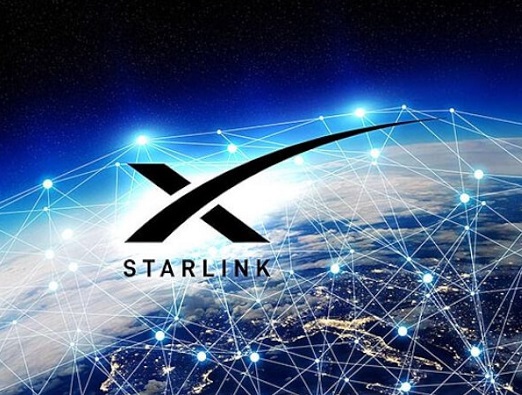
GSMA has revealed that downloads on Elon Musk’s Starlink satellite internet service is not the same for all markets and that explains why prices differ significantly across markets, including Africa.
For one, Starlink packages is most expensive in the US and cheapest in Zambia and a few other countries simply because the download speeds differ in all the different markets.
The standard plan on Starlink, which is meant for residential customers, is standard in name only as far as different regions of the world are concerned.
For example, the monthly service cost for Starlink’s standard plan in Zambia is R666, R1 604 cheaper than the same package in the US. Differences in upload and download speeds as well as latency add some complexity to a direct price comparison.
“Starlink has median download speeds greater than 100Mbit/s in 14 countries, greater than 90Mbit/s in 20 countries and greater than 80Mbit/s in 24 countries — with only three countries failing to reach 70Mbit/s,” said the GSMA, the global mobile telecommunications industry association, in a blog post.
This means users from different countries are not getting exactly the same service, which suggests they should not be paying the same price either.
TechCentral has therefore put together a table, which shows that countries that are geographically close to each have similar pricing – for example, Malaysia and the Philippines at R872 and R897 each, respectively.
However, individual pricing is not as interesting until compared to the average cost of internet in a particular country. The average cost of internet used in the table, supplied by a company called Numbeo, is based on a 60Mbit/s service with unlimited data.
In the US, Starlink users can expect to pay close to R1 000/month more than they do for fibre. By contrast, the difference in Italy is just over R200 while it is less than R150 in Germany.
Starlink could capture more mass market clients in these countries because their service is so closely matched with more traditional internet providers.
In other regions, however, higher prices are likely to push those with options away, attracting only those in remote areas where there are no other services available.
| Country | Hardware | Hardware | Service (/month) | Service (/month) | Average cost of internet (/month) |
| North America | |||||
| US | US$599 | R11 332 | US$120 | R2 270 | R1 337 |
| Canada | C$499 | R6 827 | CA$140 | R1 915 | R1 173 |
| Mexico | MX$8 300 | R8 650 | MX$1 100 | R1 140 | R539 |
| Europe | |||||
| UK | £499 | R11 441 | £75 | R1 719 | R691 |
| Germany | €299 | R5 969 | € 50 | R998 | R858 |
| France | €450 | R8 983 | € 40 | R799 | R590 |
| Italy | €450 | R8 983 | € 50 | R998 | R550 |
| Portugal | €450 | R8 983 | € 65 | R1 298 | R708 |
| Spain | €450 | R8 983 | € 65 | R1 298 | R648 |
| Asia | |||||
| Japan | ¥55 000 | R6 937 | JP¥6 600 | R832 | R598 |
| Philippines | PHP28 000 | R9 299 | PHP2700 | R897 | R631 |
| Malaysia | MYR2 300 | R9 116 | MYR220 | R872 | R472 |
| South America | |||||
| Brazil | R$2 000 | R7 596 | R$184 | R699 | R385 |
| Peru | PEN875 | R4 282 | PEN 193 | R940 | R540 |
| Colombia | COP1 320 000 | R5 982 | COP210 000 | R952 | R446 |
| Australia | |||||
| Australia | A$599 | R7 189 | A$ 139 | R1 688 | R1 040 |
| Africa | |||||
| Nigeria | N299 500 | R7 193 | ₦38 000 | R913 | No data |
| Kenya | KSh89 000 | R11 196 | KSh6 500 | R818 | R672 |
| Malawi | MK655 000 | R10 707 | MK52 000 | R849 | No data |
| Zambia | ZW10 744 | R9 285 | ZW 771 | R666 | No data |
| Mozambique | MT40 492 | R14 519 | MT3 000 | R1 075 | No data |
| Rwanda | RWF485 000 | R7 507 | RWF48 000 | R743 | No data |
| Reunion | €450 | R8 993 | €70 | R1 399 | No data |
It comes as no surprise that Starlink is more expensive than the average cost of internet in most of the regions where the SpaceX subsidiary operates.
This is because Starlink does not aim for the mass market, where providers of terrestrial internet services have established economies of scale that have helped push prices down.
Instead, Starlink aims to fill gaps where terrestrial internet infrastructure such as fibre and mobile broadband networks cannot reach. Often these are isolated regions where the cost of rolling out terrestrial internet is higher than the return on investment.
Ghana
Starlink has announced on its website that it will go live in Ghana this quarter, but regulators say they are still engaging the company and that the coast is not yet clear for Starlink to roll out their services in Ghana.
Some industry watchers think no regulatory hurdles can stand in the way of Starlink if they decide to roll out on the back of the SpaceX satellite and turn X (formerly Twitter) into a payment platform for billing purposes without connecting to any local payment platforms.









